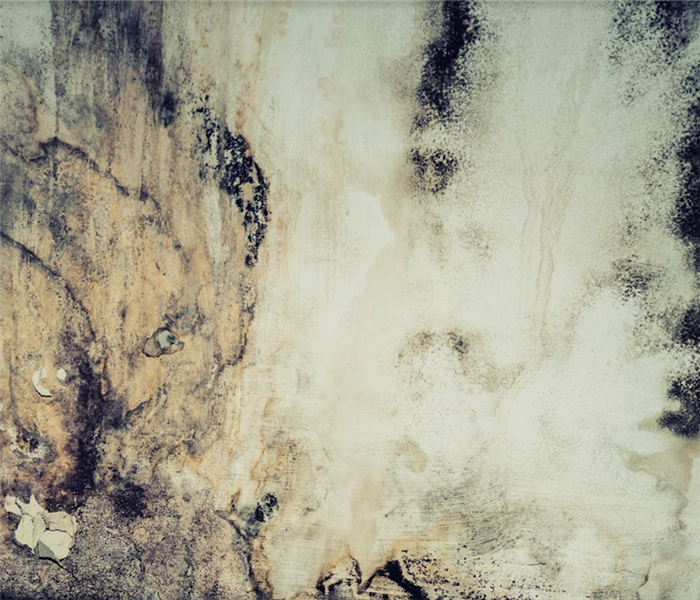Is Mold Infestation Reversible?
6/5/2022 (Permalink)
 Regardless of where the mold is found, quick action is necessary for effective mold damage remediation. Contact SERVPRO for expertise and equipment.
Regardless of where the mold is found, quick action is necessary for effective mold damage remediation. Contact SERVPRO for expertise and equipment.
Controlling Microbial Growth is Possible with Professional Mold Remediation Technicians. SERVPRO Offers Applied Microbial Remediation Technicians to Newark Residents in Need.
Can chemicals stop mold from growing?
When mold infestations occur in your Newark home, they create an exponential growth cycle that leads to further expansion and spreading. These full growth cycles can occur in as little as forty-eight to seventy-two hours. Getting rid of mold, then, becomes a race against time. The most significant measure of controlling mold is to control humidity. However, this may be tough to maintain long-term- mainly if moisture is a structural issue. Specially designed chemicals are useful in preventing molds from building through growth cycles. These are known as antimicrobial chemicals and can be invaluable to efficient and effective remediation.
What ways can anti-microbial chemicals be dispersed?
- Hand-held pressure sprays or diluted into water mixtures
- Hot water extraction equipment can incorporate antimicrobial chemicals
- Ultra-low volume thermal foggers or misting equipment
Are antimicrobial chemicals useful for all mold?
Antimicrobial chemicals are a useful tool for mold remediation in your Newark home. However, there may be some mold infestations that go deeper than surface level. In situations where there is minor to moderate wall damages, a SERVPRO technician may opt for antimicrobial paints to cover the damage. These paints act as both a sealant, trap molds, and as a base layer for you to decorate. Often these paints can incorporate odor-control to prevent musty odors from becoming an ongoing issue in the home. Our crew chiefs can walk through a job site with you to delineate any areas of continuing concern.
What household products get rid of mold?
- Vinegar is an effective way of combating light mold in the household
- Baking soda can absorb moisture causing molds to dry out
- Do not use bleach on mold as these only kill surface mold
If your property becomes a hotbed of microbial growth activity, contact SERVPRO of Newark at (302) 733-7933.






 24/7 Emergency Service
24/7 Emergency Service